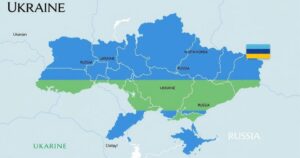Escalating Tensions in the Middle East: Recent Military Operations in Lebanon and Yemen

Recent military operations in the Middle East have intensified, with Israeli forces targeting Hizbollah in Lebanon and Yemeni rebels, amid increased geopolitical tensions. The assassination of a key Hizbollah leader has significant implications for Iranian regional strategy and has impacted sectarian divisions. Concerns are rising regarding the potential for increased chaos and humanitarian crises, as civilians are forced to flee amidst bombardments. The international community’s response is seen as paramount in managing the escalating conflict.
Recent developments in the Middle East, particularly focusing on Yemen and Lebanon, indicate a surge in military activities as Yemeni rebels have been targeted alongside intensifying airstrikes against the Hizbollah militia in Lebanon. The Israeli government’s engagement in this conflict has been bolstered by Gideon Sa’ar’s alignment with four Members of Parliament, thereby strengthening its position within the legislative assembly. In a consequential move, the assassination of a prominent Hizbollah leader has significantly impacted Iran’s regional strategy, leaving the Islamic Republic in a state of uncertainty following this heavy blow. This specific leader’s involvement in the ongoing conflict has not only stirred sectarian tensions but has also jeopardized the stability of the group he represents. Experts express concern that escalating hostilities could spiral into broader regional chaos, exacerbating the humanitarian crisis. The success of Israeli operations against Hizbollah’s leadership has been attributed to advanced reconnaissance and intelligence capabilities, allowing them to effectively recalibrate their strategies against adversarial forces. As the conflict rages on, Lebanese civilians are compelled to flee their homes under the threat of nightly bombardments from Israeli forces. The assassination coincides with the approach of the anniversary of the Hamas attack on October 7, which resulted in the tragic loss of 1,200 lives, further complicating the volatile situation in the region. While this event brings mixed feelings for the Lebanese populace, it unequivocally elevates the dangers posed by ongoing military actions. The recent assassination represents a continuation of the broader strategy that has incited widespread panic and disorder in the area. The targeted militant leader was a charismatic figure who played a pivotal role in transforming his guerrilla faction into one of the most formidable paramilitary entities in the Middle East. This focused offensive, deemed the most significant strike on the Lebanese capital, was aimed at dismantling the command structure of Hizbollah under Hasan Nasrallah. The ongoing conflict has seen increased displacement, with regions in Lebanon being some of the most affected by cycles of violence. Meanwhile, concerning responses have come from the United States as federal prosecutors accused several individuals of acting on behalf of Iran’s Islamic Revolutionary Guard Corps to exert political influence in the United States. Officials in the government are reportedly indecisive regarding these developments; however, it has been indicated that no moves would be made towards fiscal policies lacking substantial funding. Many nations in the Middle East perceive efforts to stabilize the war between Israel and Hizbollah as primarily a Western responsibility. Reaction from Washington has been one of frustration due to Israeli Prime Minister’s steadfast approach to targeting Hizbollah with increased military pressure. The mobilization of violent settlers in Israel has further heightened fears among Palestinians regarding potential attacks and displacement. In an economic context, as tensions rise, oil prices have seen a decline while preparations are underway in the Kingdom to increase output by December. Observers in Haifa exhibit support for the Israeli offensive against Hizbollah despite experiencing rocket fire in their vicinity. Furthermore, the proposed ceasefire leaves room for speculation as Israeli forces are instructed to ready themselves for a possible ground invasion against Hizbollah.
The conflicts in the Middle East, particularly in Yemen and Lebanon, have been historically complex and ongoing. Various factions, including Hizbollah and Yemeni rebels, engage in power struggles influenced by external actors like Iran and Israel. The current hostilities are anchored in longstanding grievances, sectarian divisions, and geopolitical strategies that have rendered the region highly volatile. National governments and international stakeholders are increasingly anxious about the ramifications of these conflicts, as both humanitarian and geopolitical stability appear to be at risk. Recent elections and government composition in Israel signify a shift in domestic policy that could influence military engagement. The strategic approaches employed by regional powers further complicate responses to the evolving crises. Moreover, economic implications arise as countries navigate oil production amidst geopolitical unrest, affecting global markets.
The escalation of military conflicts in the Middle East, particularly the targeted operations against Hizbollah in Lebanon and the Yemeni rebels, is indicative of a broader regional crisis that poses significant challenges to stability. With pivotal events such as the assassination of a Hizbollah leader and ongoing strategic decisions by regional powers, the potential for chaos looms large. The response from the international community, particularly Western nations, remains critical as they grapple with the implications of these developments on both humanitarian grounds and geopolitical interests.
Original Source: www.ft.com




